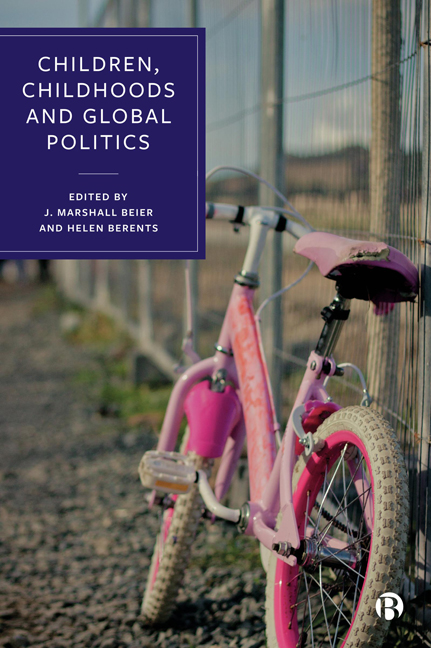9 - Alone and on the Move: Unaccompanied Children in UK Parliamentary Debates 2015–2016
Published online by Cambridge University Press: 03 April 2024
Summary
Introduction
In recent years, unaccompanied children on the move have featured prominently in global politics, with significant implications for the children themselves, but also for the potential host countries. The number of firsttime child asylum applicants (both unaccompanied and with their families) in the EU rose from 64,330 in 2011 to 386,415 in 2016 (Eurostat, 2021). The number of unaccompanied child asylum applications in the EU also increased, from 11,690 in 2011 to 63,250 in 2016, with a 2015 peak of 95,205 unaccompanied children applying for asylum in the EU, including 3,255 in the UK (Eurostat, 2021b). In Europe in 2016, around one third (390,770) of asylum applications lodged were for children, with the UK receiving a relatively small number (9,200) of those applications compared to Germany, where two thirds (261,300) of the children applied (UNHCR et al, 2017). However, while in other European countries the 2015 peak has not been superseded, the UK saw higher numbers in 2019, when it received 3,755 asylum applications for unaccompanied children, suggesting that action to address these children’s needs remains significant there. With the Russian invasion of Ukraine in February 2022, numbers of unaccompanied child refugees once again began to rise in the UK, even more so in Poland and Germany.
Although the presence of independently migrating children is not an entirely new phenomenon, their increased presence has challenged accepted ideas about children and childhood held by policy makers. Moreover, the growing visibility of unaccompanied children and awareness of their specific needs pose significant questions for policy makers and wider host societies alike. This has been particularly notable in the UK, where questions of migration were politically leveraged throughout the Brexit decision process with significant implications for policy making and people’s everyday lives in the UK, Europe, and beyond.
During the so-called ‘refugee crisis’ of 2015–2016, public concerns relating to children on the move increased concurrently with major related political debates in Europe, including the Brexit vote in mid-2016 – a particularly prominent example of a broader political decision widely linked to ideas about immigration. Drawing on data gathered through a wider study considering political representations of young people on the move, in this chapter we consider the particular salience of representations of unaccompanied children, who are often highlighted as the children seen as most at risk or causing most concern.
- Type
- Chapter
- Information
- Children, Childhoods, and Global Politics , pp. 127 - 139Publisher: Bristol University PressPrint publication year: 2023



